Dry: A Weekly Western Drought Digest — September 13, 2022
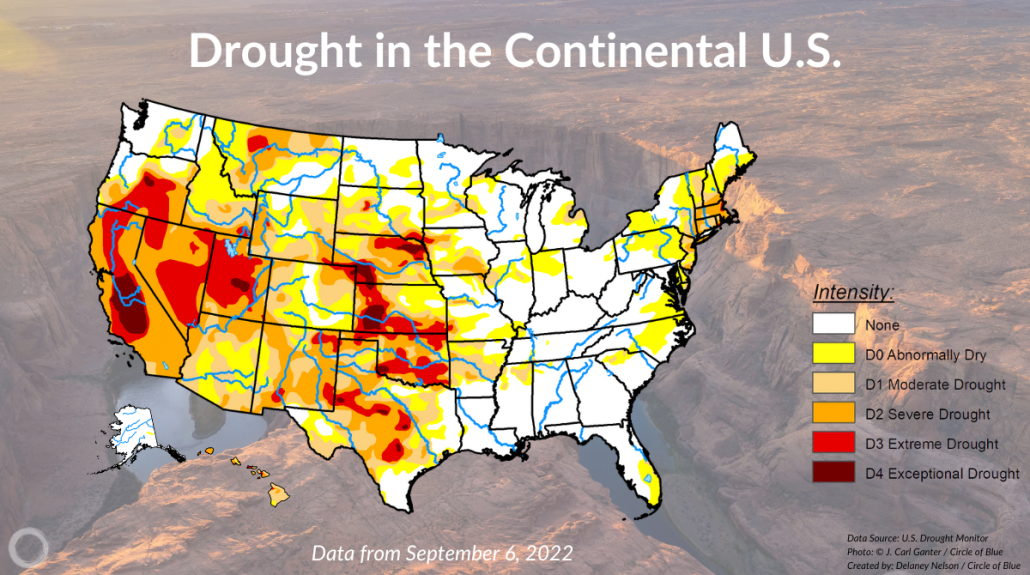
By Delaney Nelson, Circle of Blue – September 13, 2022
The American West is experiencing its most severe drought in 1,200 years. The consequences are far-reaching and long lasting. Forests become tinder boxes. Hydropower is weakened. Human health and wildlife are threatened.
Each week, Circle of Blue breaks down the biggest stories, the latest data, and the most promising solutions to the United States’ most urgent water crisis. Read Dry: A Weekly Western Drought Digest, your go-to news brief on the drying American West.
TOP NEWS
- As of September, nearly 37 percent of the U.S. and Puerto Rico are in drought, down five percentage points in the last month.
- Reclamation announces Utah’s Flaming Gorge Reservoir stores enough water for only two more emergency releases.
- Queen Creek, Arizona, will buy water from farmers on the Colorado River.
- Drought conditions slow agricultural production for the Ute Mountain Ute Tribe.
THE NUMBERS
- More than 114 million people live in areas experiencing moderate drought or worse. According to the U.S. Drought Monitor, dry conditions are present across 232 million acres of cropland.
- This year marked the third-warmest summer on record for the contiguous United States, according to the National Oceanic and Atmospheric Administration. The average temperature last month was 2.5 degrees Fahrenheit above average, making it the eighth-warmest August on record.
August 2022 drew to a close the 3rd-warmest summer on record for the contiguous US.
🌡️August temps were 2.5°F above average, ranking 8th warmest in the 128-year record.
🌧️Precipitation ranked in the wettest 3rd, but was record wet in Mississippi.https://t.co/SZCsHsIqKg pic.twitter.com/Fm13uQhM9x— NOAA Climate.gov (@NOAAClimate) September 12, 2022
- The Houston area is experiencing considerable drought relief, at least in the short term. According to the U.S. Drought Monitor, 57 percent of Greater Houston was experiencing some form of drought at the end of August, a figure that dropped to five percent by Sept. 6 after a prolonged period of rainfall.
STATUS OF TOP RESERVOIRS/COLORADO RIVER
- The Bureau of Reclamation announced Utah’s Flaming Gorge Reservoir likely only has enough water left for two more emergency releases – a shortage that compounds the already-dwindling water supplies of the Colorado River and its reservoirs. The agency has used water from Flaming Gorge to support shrinking lakes Powell and Mead. The reservoir is supposed to act as a “critical savings account” for the river system, writes Jerd Smith of Fresh Water News.
- The Colorado River basin’s ecosystems and species are feeling the consequences of declining water levels. While no species has gone extinct yet, populations of aquatic amphibians, fish, and insects as well as trees and birds are declining, the Revelator reports.
QUEEN CREEK TO BUY COLORADO RIVER WATER
The Bureau of Reclamation cleared the way for Queen Creek, Arizona, to buy water from farmers along the Colorado River to support the suburb’s growing population. In its impact assessment, the federal agency concluded the water transfer project, which will operate through the Central Arizona Project, will not have a significant effect on the human environment. Meanwhile, Colorado River water allocation remains a subject of disagreement among basin states.
UTE MOUNTAIN UTE TRIBE FACES AGRICULTURAL LOSSES AMID DROUGHT
Throughout the Southwest, tribal communities are contending with aridification of their lands. Drought conditions have slowed alfalfa and corn production at the Ute Mountain Ute Tribe Farm & Ranch Enterprise, resulting in a $4 million to $6 million loss for the farm over the last two years, according to reporting from NBC News. To make up for agricultural losses, the tribe has shifted to milling corn and packaging cornmeal, though the new operations do not offset drought losses. The Colorado and New Mexico counties in which the tribe resides are experiencing some level of severe drought or worse.
Delaney Nelson is an intern for Circle of Blue covering drought in the American West. She writes Circle of Blue’s weekly roundup of drought in the American West. She’s a rising senior at Northwestern University studying journalism, political science, Spanish and environmental policy. In her free time, she likes to hang out with her dogs, play soccer and swim in Lake Michigan.

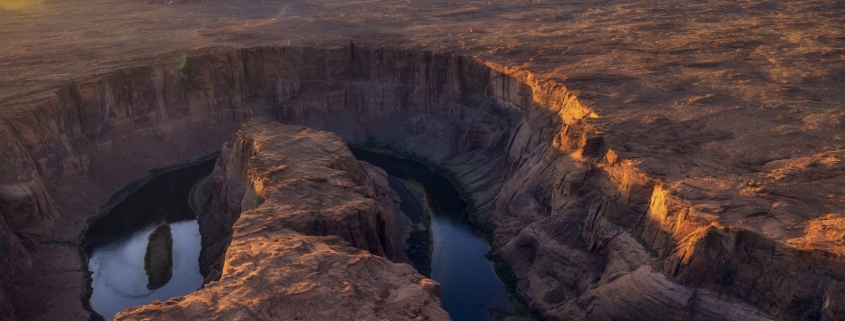
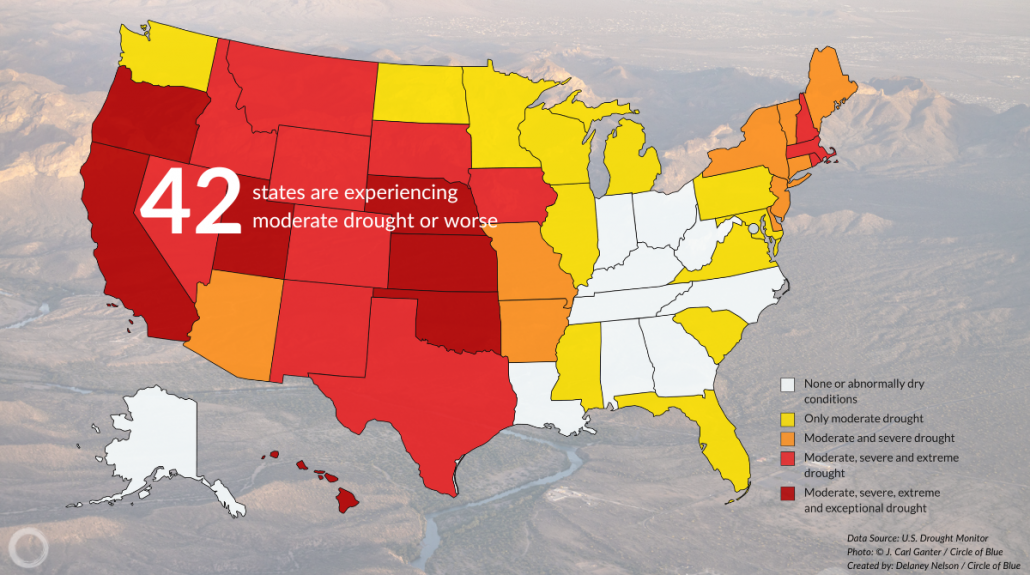



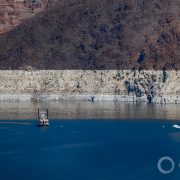
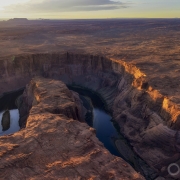



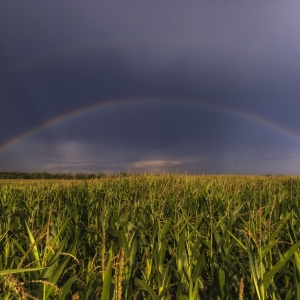

Leave a Reply
Want to join the discussion?Feel free to contribute!